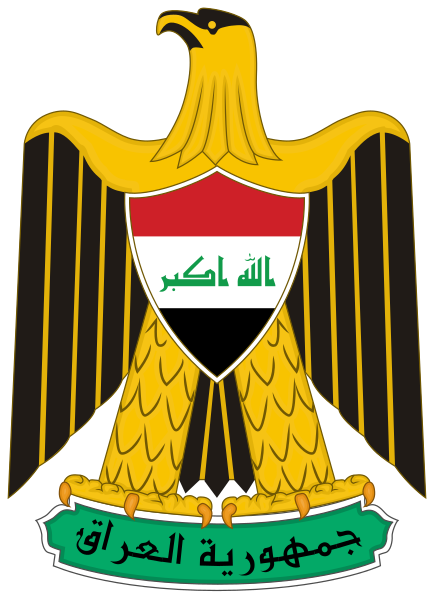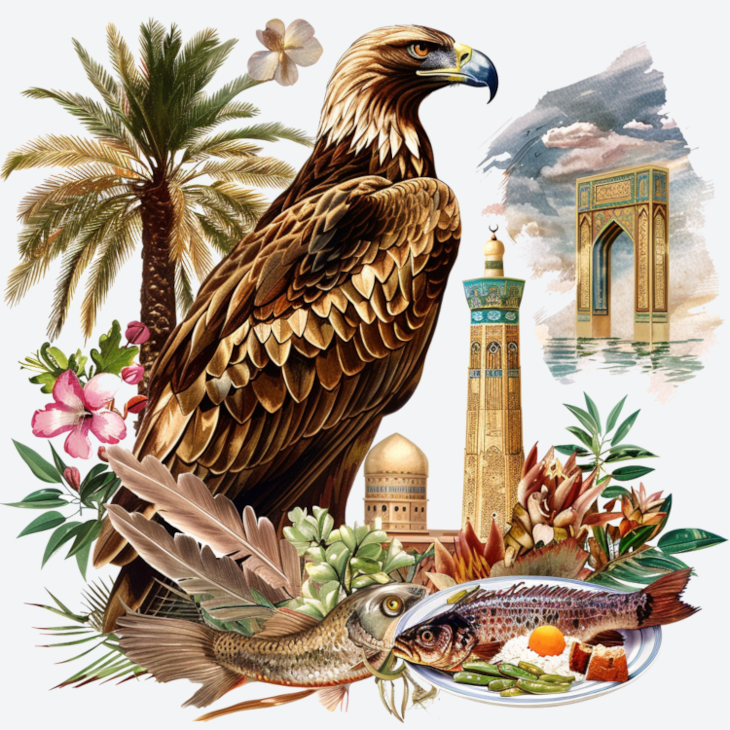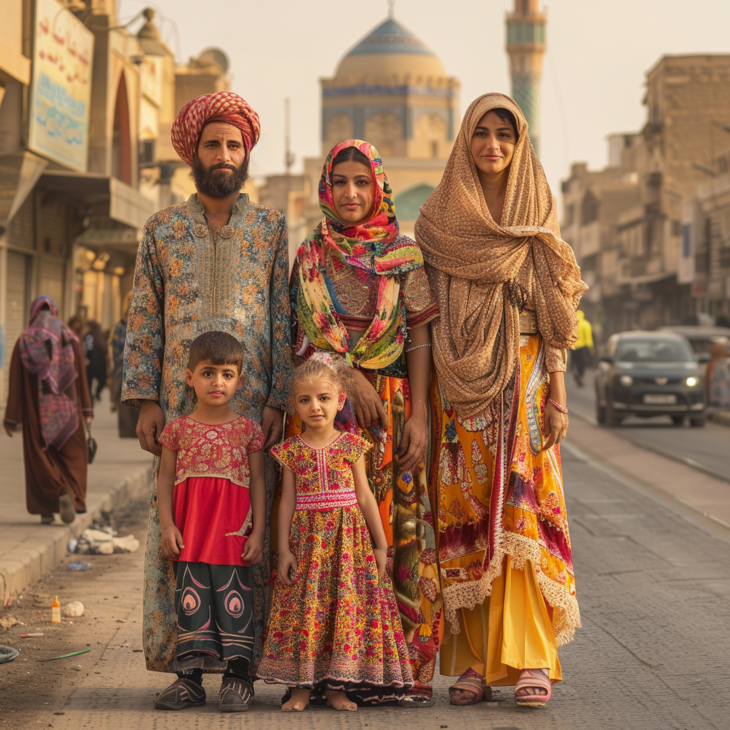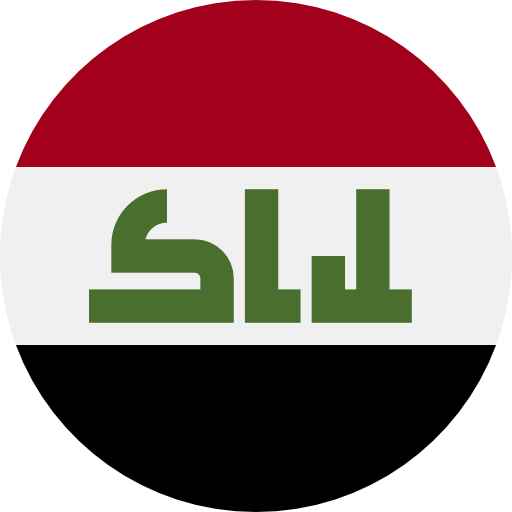About IQ

Location
Iraq is a country located in the Middle East, bordered by Turkey to the north, Iran to the east, Kuwait to the southeast, Saudi Arabia to the south, Jordan to the southwest, and Syria to the west.
Capital
The capital city of Iraq is Baghdad.
Population
As of the latest estimates, Iraq has a population of approximately 40 million people.
Area
Iraq covers a total land area of about 438,317 square kilometers (169,235 square miles).
Official Language
The official language of Iraq is Arabic, while Kurdish is also recognized as an official language in the Kurdistan Region.
Government
Iraq is a federal parliamentary republic. The President of Iraq is the head of state, while the Prime Minister serves as the head of government. The government structure includes a Council of Representatives and a Council of Ministers.
Religion
Islam is the predominant religion in Iraq, with the majority of the population adhering to Shia Islam. There is also a significant Sunni Muslim minority, as well as small communities of Christians, Yazidis, and other religious groups.
Economy
Iraq's economy is largely dependent on its vast oil reserves, which are among the largest in the world. Oil exports account for the majority of government revenue and GDP. Other sectors of the economy include agriculture, industry, and services.
History
Iraq has a rich history dating back to ancient Mesopotamia, often considered one of the cradles of civilization. It was home to some of the earliest human civilizations, including the Sumerians, Akkadians, Babylonians, and Assyrians. Iraq has seen numerous conquests, empires, and conflicts throughout its history.
Culture
Iraq has a diverse cultural heritage influenced by its ancient civilizations, Islamic traditions, and Arab and Kurdish ethnicities. The country has produced notable contributions to literature, poetry, music, art, and architecture.
Conflict
Iraq has faced significant challenges in recent decades, including the Iran-Iraq War, the Gulf War, and the Iraq War. The country has also experienced internal conflicts, sectarian violence, and the rise of extremist groups such as ISIS (Islamic State of Iraq and Syria).
Infrastructure
Iraq's infrastructure has been heavily impacted by years of conflict and sanctions. Efforts are ongoing to rebuild and develop infrastructure in areas such as transportation, energy, and healthcare.

National Items of Iraq
Golden Eagle
The Golden Eagle (Aquila Chrysaetos) is the national bird of Iraq. Known for its majestic flight and keen eyesight, it symbolizes power, freedom, and the rich natural heritage of the country.
Rhododendron (Oleander)
The Rhododendron, commonly known as Oleander (Nerium oleander), is considered one of the national flowers of Iraq. Its vibrant blossoms represent beauty and resilience.
Date Palm
The Date Palm (Phoenix dactylifera) is the national tree of Iraq. It symbolizes prosperity, fertility, and the country's rich agricultural heritage, particularly its historical significance in date production.
Lion of Babylon
The Lion of Babylon is an ancient symbol representing strength and courage. It has historical significance and symbolizes the rich cultural heritage of Iraq.
Masgouf
Masgouf, a traditional Iraqi dish made from grilled carp, is considered a national dish. It represents the rich culinary traditions and the importance of the Tigris and Euphrates rivers in Iraqi cuisine.
Tigris and Euphrates Rivers
These two rivers are historically and culturally significant to Iraq. They symbolize the cradle of civilization, fertility, and the historical development of Mesopotamia.
Abaya and Dishdasha
The Abaya (for women) and Dishdasha (for men) are traditional garments in Iraq. They symbolize the cultural heritage and traditional attire of the Iraqi people.
Ishtar Gate
The Ishtar Gate, an ancient Babylonian structure, symbolizes the rich historical and architectural heritage of Iraq. It is a significant archaeological landmark.
Dabka Dance
The Dabka is a traditional Iraqi dance that is performed during celebrations and social gatherings. It symbolizes cultural heritage, unity, and the festive spirit of the Iraqi people.
Palm Tree
The Palm Tree, especially the date palm, is significant in Iraqi culture and symbolizes the country's agricultural prosperity and natural beauty.
Epic of Gilgamesh
The Epic of Gilgamesh, an ancient Mesopotamian poem, symbolizes the literary and historical heritage of Iraq. It is one of the earliest works of literature in human history.
Baghdad Clock Tower
The Baghdad Clock Tower is an iconic landmark in the capital city, symbolizing the historical and cultural identity of Baghdad and Iraq.

This anthem celebrates the beauty and significance of Iraq as a homeland, expressing love and pride for the country. It highlights the importance of Iraq as a source of inspiration and hope for its people.
The national anthem of Iraq is called "موطني" (Mawtini) in Arabic, which translates to "My Homeland" in English. Here are the lyrics in Arabic along with an English translation:
موطني، موطني، موطني
أنتِ لكلِّ الأوطان
حماكِ الله يا بلادي
حماكِ الله يا بلادي
أنتِ عيني فيكَ أحيا
ومنكَ في الروحِ نسيمٌ
فيكَ تنامُ أحلامي
فيكَ تنامُ أحلامي
أنتِ نجمةٌ في السماءِ
فيكَ تفتحُ الزهورُ
أنتِ لي مصباحٌ
أنتِ لي مصباحٌ
موطني، موطني، موطني
أنتِ لكلِّ الأوطان
حماكِ الله يا بلادي
حماكِ الله يا بلادي
My homeland, my homeland, my homeland
You are for all the homelands
God protect you, my country
God protect you, my country
You are my eyes, I live in you
And from you, the spirit's breeze
In you, my dreams sleep
In you, my dreams sleep
You are a star in the sky
In you, flowers bloom
You are my lamp
You are my lamp
My homeland, my homeland, my homeland
You are for all the homelands
God protect you, my country
God protect you, my country


